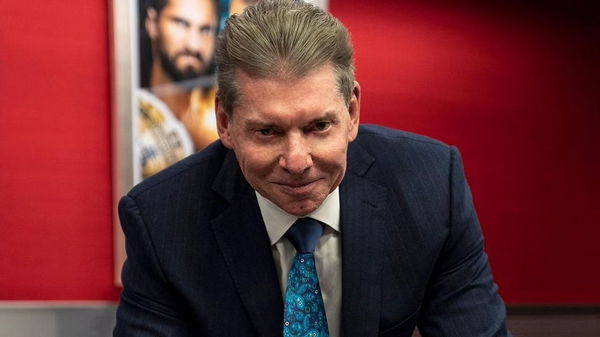

To speak of Vince McMahon is to mention a very powerful man, not just in the United States but in the world. McMahon didn’t get rich overnight, but through hard work and a lot of sleepless nights, he achieved success in the wrestling industry.
WWE is a well-known brand that has generated millions of profits among so many superstars who managed to step into a ring. Was it easy to achieve? Here’s the story.
ADVERTISEMENT
Article continues below this ad
Vinnie Mac and the then-WWWF
Vincent Kennedy McMahon spent most of his childhood and adolescence living with different stepfathers, as his father abandoned him when he was a baby. Years later, they met again, and he started working for his company, WWWF. The WWWF was a wrestling company that his father inherited from his grandfather. His first job was as an announcer for the wrestlers, and then he became a commentator. Months later, in 1979, Vince McMahon became independent and, together with his wife, bought a promotion called Titan Sports Inc.

via Imago
Image Courtesy: Imago
Vince McMahon certainly didn’t waste his money. While his wife worked at a law firm, a staple for legal matters, he worked hard to grow the company. In 1982, with all the money earned, he bought the WWWF from his father and turned it into the WWF.
WWF: The beginning of an empire
The first thing Vince McMahon did was make the WWF more well-known. Vince has been promoting it since the early 1980s, eliminating competition to transform his regional wrestling company into a national one in the United States. He brought back a star as important as Hulk Hogan, who was in the competition. He also made an agreement with MTV to air the fights and invited pop and rock greats such as Alice Cooper and Cyndi Lauper.

Just when everyone thought the WWF was real, it was discovered that Vince McMahon started planning everything: moves were rehearsed, and wrestlers created characters like actors do in Hollywood. By doing this, he avoided paying taxes for creating a contact sport.
The spectacle that was the first WrestleMania
From then on, real success began. Through the establishment of Wrestlemania, which was broadcast on the open signal and was well-received, McMahon managed to cross the barriers of pop culture with figures such as Hulk Hogan, Randy Savage, The Ultimate Warrior, The Undertaker, Bret Hart, and Shawn Michaels.
Watch This Story | Every WWE Superstar Who Attacked Vince McMahon
But at the same time, in 1988, he was doing other events of lesser magnitude that still generated money and recognition among the fans.
The attitude era
WWF was revitalized by the hand of wrestlers such as Stone Cold Steve Austin and The Rock through more rooted stories. That even gave rise to the company’s owner participating in the stories in the role of the evil “Mr. McMahon.” His unmissable fights were highly acclaimed by fans, and he made a “war” with Steve Austin.
As is often the case to this day, the numbers went up, and the money came back. They sure earned a lot, as WCW was the WWF’s direct competition, and they were fighting inch by inch for ratings. However, the WWF acquired WCW thanks to Vince McMahon’s genius and the popularity of the attitude era.
The name change
In 2002, due to a legal dispute with the WWF (World Wildlife Fund), WWE changed its name from WWF (World Wrestling Federation) to WWE (World Wrestling Entertainment). Both organizations used the acronym “WWF,” leading to a dispute. However, a settlement was reached, and the wrestling promotion agreed to change its name, thus focusing more on the entertainment aspect of the sport.
The PG era
Soon, WWE introduced the WWE’s PG Era, marking a shift toward more family-friendly content suitable for all ages. This change was highly characterized by a reduction in violence and not-so-pleasant language, as well as the introduction of more diverse characters and plots.

This appealed to a broader audience compared to the prior late-teenage-adult-only audience. Although Vince McMahon received criticism for its lack of intensity, the PG Era left a legacy of WWE’s adaptability and ability to evolve with the times.
ADVERTISEMENT
Article continues below this ad
Challenges and crises
Despite his successes, McMahon also faced numerous challenges and controversies. From st***id allegations to unfair labor practice lawsuits to allegations of sexual misconduct, McMahon has been under constant scrutiny. And as he aged, tensions arose within WWE, both with his employees and his own family. Following more allegations against him, McMahon resigned, wanting to keep his distance from the company he built after years of hard work.
ADVERTISEMENT
Article continues below this ad
The legacy he left behind
Despite the controversies surrounding him, one cannot deny that McMahon’s legacy in WWE endures. It was his vision and sheer determination that turned professional wrestling into a global phenomenon. His journey with the WWE will always be a testament to his dedication and passion for sports entertainment. In fact, it won’t be wrong to say his impact on the industry will last long beyond his tenure and will always be in the memories of pro-wrestling fans all around the world.
ADVERTISEMENT
ADVERTISEMENT
ADVERTISEMENT
ADVERTISEMENT

